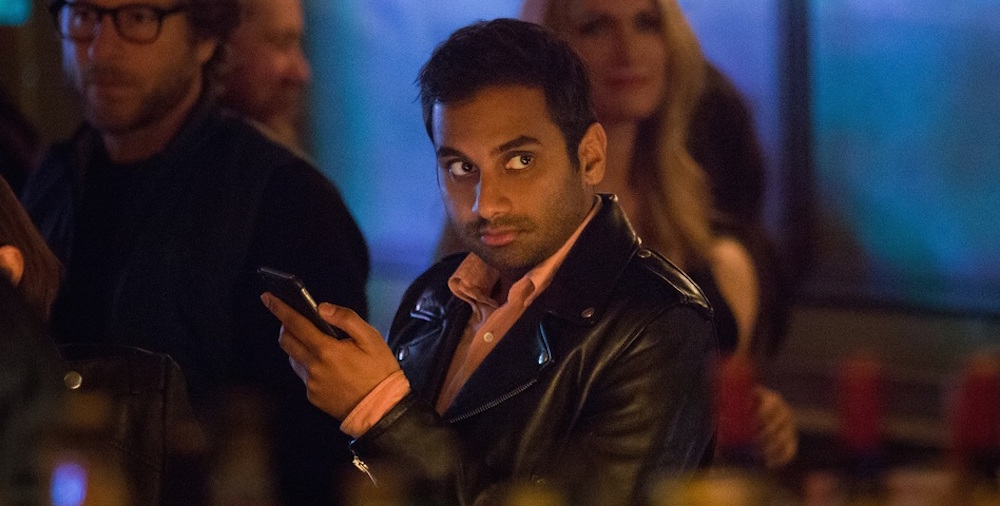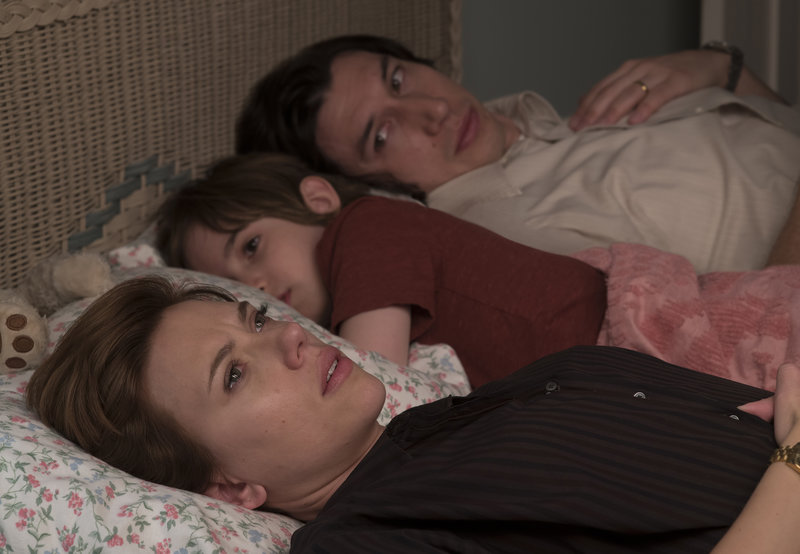In my first piece for the Wheel, I talked about the rise of auteur-driven comedy television. The basic idea is that the single most fruitful creative partnership in modern comedy comes about when a network finds a comedian with a strong creative voice, and then gives them a season of television to mold and create as they see fit. Netflix picked up on this, and made the wise decision of giving actor and stand-up comic Aziz Ansari (Parks and Recreation, Funny People) the space to create Master of None.
Co-created by Ansari and Parks and Recreation writer Alan Yang, Master of None follows Dev Shah (played by Ansari), a struggling 30-year-old actor living in New York City. He’s the son of immigrant parents, the kind of drifting adult that Judd Apatow keeps making movies about and the subject of so many think pieces littering the internet. He’s not quite grown up, and he’s in a world that, right now, isn’t requiring or even asking that of him.
His friends, Arnold (Eric Wareheim), Denise (Lena Waithe) and Brian (Kelvin Yu), are stuck in similar places, in the perpetual transitionary twilight of trying to make the decisions that are asked of you at the point when you really should be an adult. Master of None’s stock and trade is brilliantly personifying these struggles and making clear how muddled and difficult making any decision about adulthood is.
Which I will grant you, is the stock and trade of many of these shows. Much of Louie, comedian Louis C.K.’s self-titled television show on FX, a show that this one has rightfully been compared heavily to, is about the unclear waters of life. But the brilliant thing about auteurist television is that the specific perspective the comedian brings can make the same material feel different and fresh no matter who else previously broached the same topics.
Let’s look at relationships, which are quite possibly the most tread over topics in comedy. Ansari made much of his stand-up about the perils of dating, and his recent book, Modern Romance, is about how we date in an era of total choice.
Unfortunately, the material that’s just about dating is perhaps the weakest of the Master of None. I really did like the episode “Hot Ticket,” an episode about Dev’s attempts to ask a girl to a show. While I enjoyed the modern specificity of how you ask and wait for the text back and the conversation Dev has with his friends about their methods, it’s a little bit of a creativity bandage on what comes across as the same material that most other narratives about dating are producing. The show can’t seem to come up with more than saying that dating is difficult, and that you end up with a lot of crazy people until you find the single person with whom you wish to spend your time with.
When Dev finds that person, the material soars. She is music promoter Rachel (Noel Wells). For any fellow fans of Saturday Night Live (SNL), you’ll recognize her as the one season wonder with a solid Lena Dunham impression. But as is wont to happen with some of the most recent SNL ladies, we only find out how talented they are once they leave. Rachel is a phenomenally sketched character, a strong and independent one who has realistic chemistry with Dev.
Their relationship becomes the foreground of two phenomenal episodes, which are the most experimental episodes as well: “Nashville” and “Mornings.” “Nashville” is a travelogue episode in the vein of Richard Linklater’s Before… trilogy, in which Dev and Rachel interact with the city of Nashville and each other, both growing and fighting together. It’s a sweet and realistic episode, and its themes end up being explored in what is likely my favorite episode of the season, “Mornings.”
It follows a year in the life of Dev and Rachel by looking at their various mornings. I don’t think any episode of television has ever so legitimately captured the ups and downs of a relationship in a captivating, sweet and wonderfully realistically human way. If you watch Master of None for no reason other than to get to this episode, then it’s time well-spent.
But if Master of None was only its take on relationships, it wouldn’t be great television. It’d be good television. It is the specific take that only Master of None can provide that pushes it into the world of great television. And that is, specifically, its take on race.
I wouldn’t say Master of None is about race, at least not in the same way that we’ve seen shows like Black-ish and Fresh Off the Boat be about race. Race is not the forefront of the show’s identity; rather, it is a thread that runs through the show and informs what it does, allowing it to become a part of the tapestry. Master of None is not a show exclusively about a Indian man and the immigrant experience.It is a show where that story lies too deep in its DNA to be extracted.
It becomes foregrounded best in “Parents,” which is an episode most explicitly about the immigrant experience. In the opening sequence, Dev and his friend Brian both shrug off requests of their fathers to get to the movie they’re going to see early, causing each parent to flash back on the journey that they took from their respective home countries to America. It’s a great and surprisingly poignant sequence that highlights the recurring theme of the sacrifices made for the luxury of the wealthiest first-generation immigrants, and more broadly, the very different struggles that Ansari feels his generation has with the comforts their parents have provided for them.
And speaking of parents, I want to give a shout out to Dev’s parents, Ramesh and Nisha, both played by Ansari’s real life parents, Shoukath and Fatima.
There’s something unfailingly authentic about the show as a whole. It’s a show that feels like it only could have come from Ansari, who shows an incredible amount of range here, and it feels unflinchingly like a comedic look at the real thought processes of his character Dev. Clearly influenced by Richard Linklater (Boyhood) as well as the work of directors who actually crafted episodes of this series Lynn Shelton (Humpday, Laggies) and James Ponsoldt (The End of the Tour, The Spectacular Now), Master of None cuts beautifully close to the bone. It feels as though there’s something for anyone and everyone to relate to, without ever feeling too broad.
GRADE: A-
Opinion Editor | Brandon Wagner is a College Senior from God Only Knows Where, America studying Film and Media Studies with a minor in Religion. This is his first year for the Wheel, in a likely misguided experiment to be a film critic. When he's not writing on the biggest blockbusters or the films of Spike Jonze or Andrei Tarkovsky or Zack Snyder, he's writing on comedic television, the future of gaming as an art, or the relationship between audience and cinematic experience. In other words, Brandon Wagner has basically nothing else going on but this.




